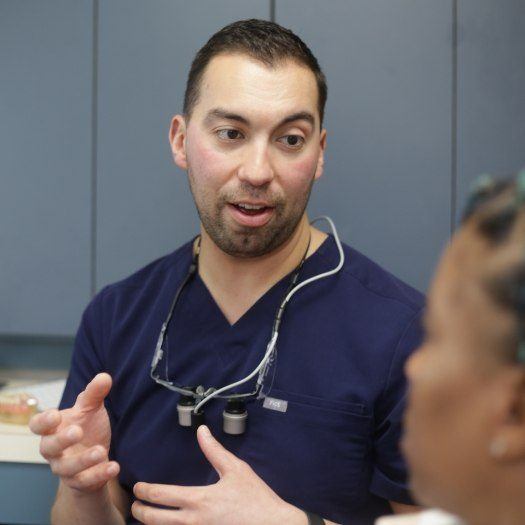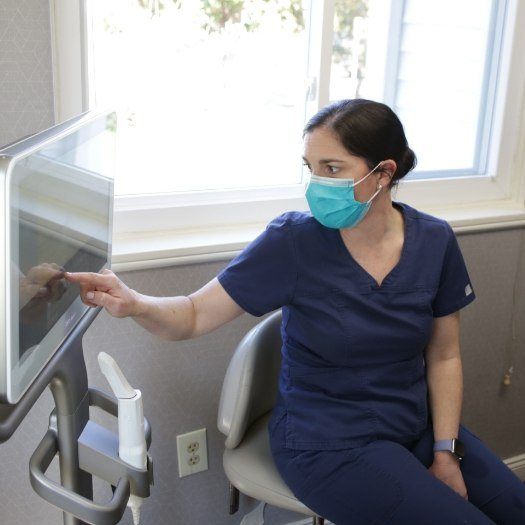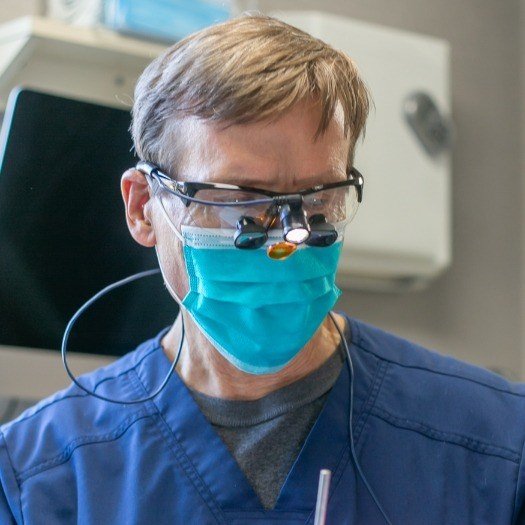Dental Hygiene Frequently Asked Questions Greenbelt
Why Do I Have to Get My Teeth Cleaned Every Six Months?

When you have a healthy checkup, why do you need another cleaning and dental checkup in six months? In dentistry, the key to minimizing dental treatment is prevention. Getting your teeth cleaned at least twice a year allows the dental hygienist to tailor your home care routine to get the best results. Adjusting your toothbrushing technique, choosing different flossing aids, and even changing your fluoride intake can all help to prevent gum disease and maintain oral health at home between your dental office visits. Sometimes, if there is a history or sign of gum disease, you will need dental checkups and teeth cleanings performed by a dental hygienist more frequently than every six months. The reason for this is when you have a cavity or infection, you will almost always have discomfort or pain and will know that it is time to schedule an appointment with your dentist. Gum disease is usually painless and can occur without symptoms being recognized by the patient, but it needs to be monitored frequently by a dental professional.
Whether it has been six years or six months since you last visited us for a dental checkup and professional teeth cleaning, it’s time to give our team a call. We look forward to helping you with all of your oral health and hygiene needs in our state-of-the-art, family-friendly dental office. On this page, you'll find the answers to dental hygiene frequently asked questions from our dentists.
Why Choose McCarl Dental Group, PC for Dental Hygiene Care?
-
 Outstanding team of highly trained hygienists
Outstanding team of highly trained hygienists -
 Knowledgeable and experienced in gum disease detection
Knowledgeable and experienced in gum disease detection -
 Can help detect oral cancer during its earliest stages
Can help detect oral cancer during its earliest stages
Why Are Dental Cleanings Important?

Plaque, a soft sticky film produced by oral bacteria, constantly accumulates, and if missed for 48 hours or longer, it begins to harden and turn into calculus, sometimes called tartar. Once calculus forms, it is no longer removable at home. Instead, it must be removed with the specialized tools used by dental hygienists at the dental office. Having calculus along and under the gumline is similar to having a splinter in your hand. The area around it gets red, sensitive, and swollen, and it will not get better until the splinter is removed. Your regular professional teeth cleanings with our team are the opportunity to remove that splinter.
What Happens When Plaque Isn't Removed?

Prolonged periods of unremoved calculus and plaque buildup leads to inflammation and gum (periodontal) disease. The beginning stages of gum disease are reversible, and the gum tissue can heal and reattach to the teeth with proper removal of bacteria and maintenance of a healthy oral environment at home and in our dental office. As gum disease progresses, though, permanent bone damage occurs around teeth and more advanced treatments and deep cleanings are necessary to maintain health in a higher risk environment. Gum disease is not always about poor oral hygiene, as genetics plays a role in plaque accumulation and how quickly it transforms into calculus, so sometimes, patients who practice good at-home oral habits still need to come in more often. You cannot change your genetics but rather, you have to learn to work with it, and a trusted dental hygienist can help you do just that.
Gum Disease Treatment Options

A six-month recall is only aimed at patients who have healthy gums. Sometimes, patients will need to get their teeth cleaned every 3-4 months as prevention for advanced gum disease. In the half a year interval, they will remain healthy with a few minor suggestions, but those with gum disease that causes bleeding and soft tissue recession, and those with high calculus levels need more frequent cleanings to keep their oral health under control. If, during a six-month recall, the gum tissues are not stable, a more frequent dental office visit is suggested.
Benefits of Regular Dental Checkups

In addition to promoting gum health, oral cavity monitoring frequently provides the best chance for the dentist to diagnose and treat cavities and other oral issues while the problems are small and easier to fix. Waiting until a tooth hurts to see a dentist usually involves more extensive dental treatment as opposed to catching a small cavity on checkup X-rays and removing the decay before it reaches an advanced stage.
What Happens During Dental Cleanings?

Routine dental cleanings are necessary to maintain and preserve optimal oral health. It is recommended that you visit our dental office at least every 6 months to have a routine checkup and dental cleaning with our team. Sometimes, when patients are experiencing periodontal (gum) disease, more frequent visits are required to reduce and eliminate harmful bacteria.
